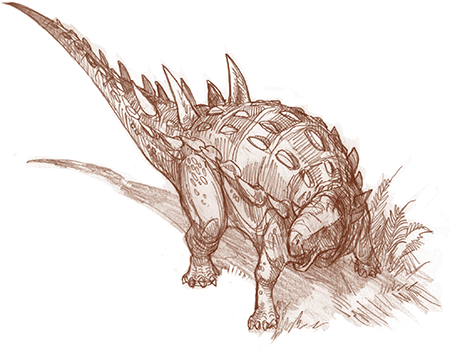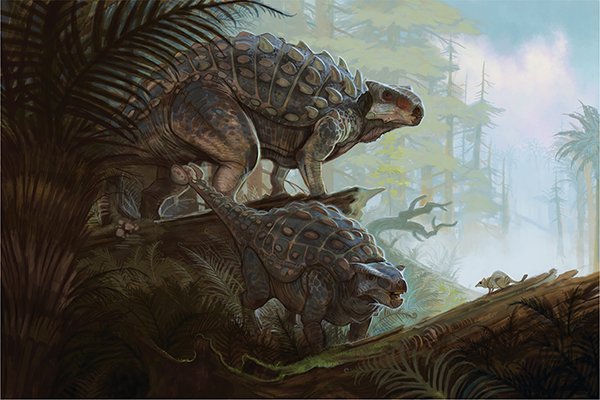

PRONUNCIATION | ang-KILE-uh-SAWR-us
SPECIES | Ankylosaurus magniventris
NAME | Fused Lizard
FAMILY | Ankylosauridae
PERIOD | Cretaceous
DIET | Herbivore
SIZE | 30 feet (9m)
YEAR DISCOVERED | 1908
Ankylosaurus were the tanks of the dinosaur world and a member of the much larger Ankylosauridae family that included similar armored dinosaurs like euoplocephalus and talarurus. Armored with thick bony plates and a heavy clubbed tail (some with protruding spikes), ankylosaurus was a slow and gentle but powerful giant.
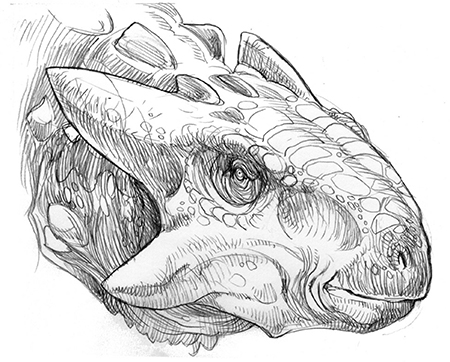
Because the ankylosaurus lived low to the ground in deep forest, its eyes were small but its nose was powerful. Its nose would sweep the ground for tasty morsels, much like hogs, while also taking note of danger in the woods.
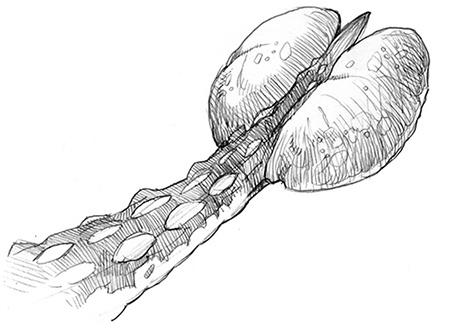
The heavy bone clubbed tail was an effective defense against predators of the Cretaceous forest. One strong hit with this formidable weapon could shatter the bones of a tyrannosaurus. Like with modern porcupines or armadillos, most predators simply left ankylosaurus alone.
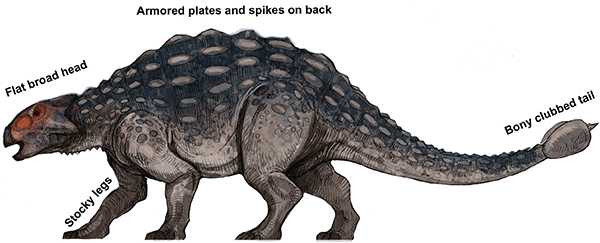
Though ankylosaurus is believed to have had poor vision, a keen sense of smell would have served it well in the Cretaceous landscape. The top speed of ankylosaurus is thought to be about 6mph (10km).
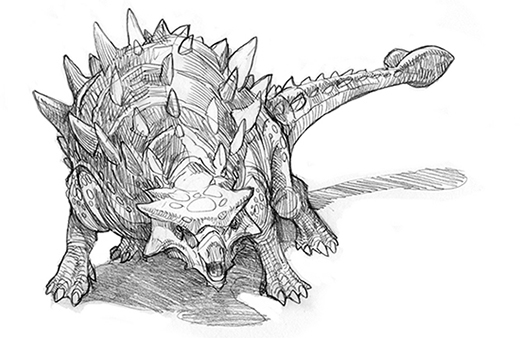
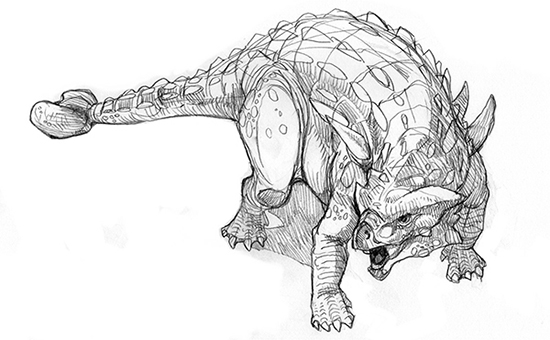
The late Cretaceous world would have seen ankylosaurus hunted by tyrannosaurus, but because of their fierce spikes and clubbed tails, larger predators would have found the herds of hadrosaurs a much easier meal.
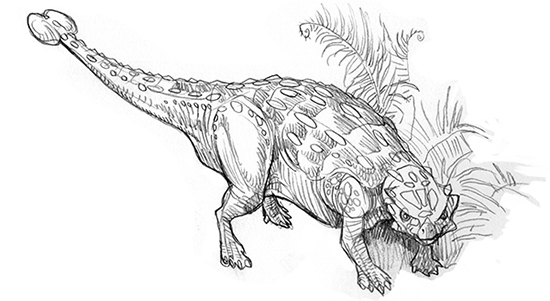
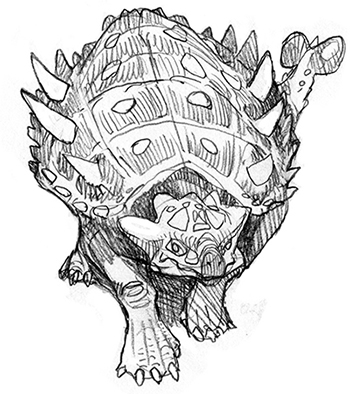
Unlike other dinosaur species, ankylosaurus is believed to have been a solitary dinosaur much like today’s rhinoceros or porcupine.
A close relative of the ankylosaurus, the hylaeosaurus had more prominent spikes but no clubbed tail and is a member the family of armored dinosaurs called nodosaurs.
